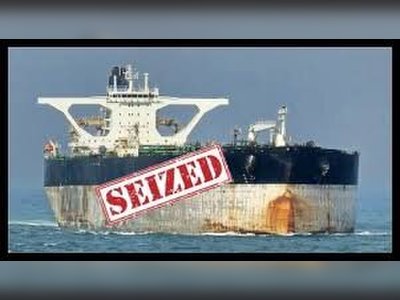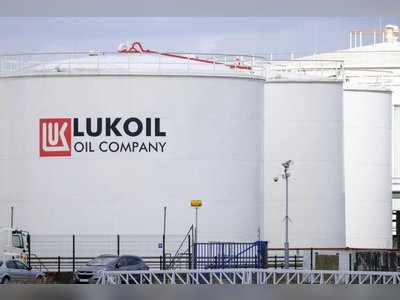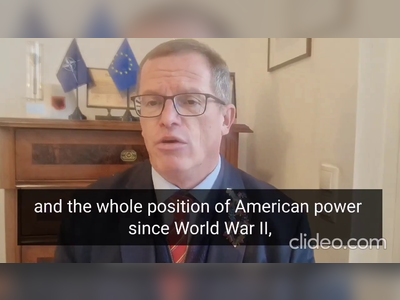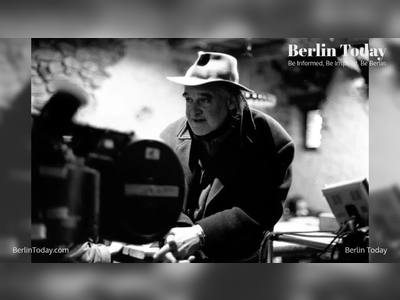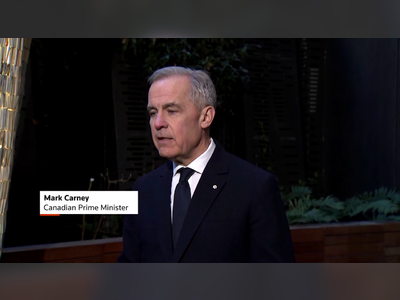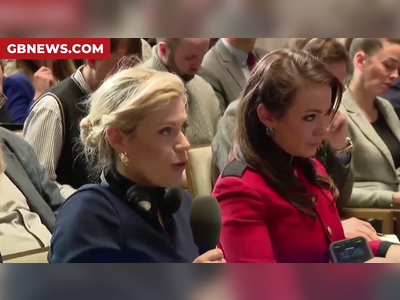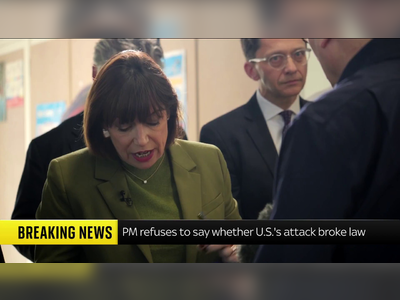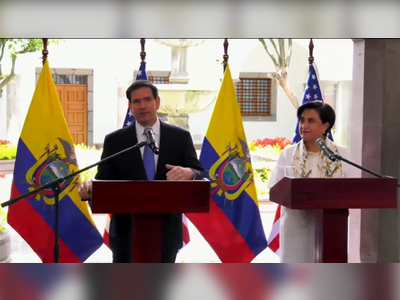Europe Commits Additional €30 Billion to Ukraine Amid Escalating Tensions
As the EU intensifies financial and political support, the live conflict in Ukraine remains at a critical juncture with new diplomatic developments.
In a decisive summit, European Union leaders have agreed to allocate an additional €30 billion in financial aid to Ukraine, underscoring the bloc's ongoing commitment to supporting Kyiv amid an increasingly volatile geopolitical landscape.
Announced by European Council President Antonio Costa, the funding aims to bolster Ukraine's resilience against any unforeseen developments as the conflict with Russia stretches into yet another year.
The announcement came amidst a swirl of diplomatic activity.
German Chancellor Olaf Scholz held a phone conversation with incoming U.S. President Donald Trump, reinforcing Germany's enduring support for Ukraine.
Scholz emphasized the necessity for a prolonged commitment to aid but stressed the importance of achieving a sustainable peace that is fair and just.
In a parallel trajectory, Russian President Vladimir Putin, during his annual press conference, signaled a willingness to enter negotiations but offered no concrete details on potential compromises.
Putin reiterated accusations against Kyiv for allegedly stalling talks and highlighted an earlier failed agreement in Istanbul, which he claimed was thwarted by Western influences.
Amid these geopolitical maneuvers, the battlefield remains unforgiving.
A Russian rocket attack in Kharkiv killed three individuals and injured several others, devastating multiple residences.
As the humanitarian toll mounts, the EU's renewed financial support underscores the necessity and urgency for continued international backing.
On the resources front, new reports have emerged suggesting Russia's utilization of factory-new missiles from North Korea, an alarming escalation that has drawn attention to possible sanctions violations.
Conflict Armament Research, a UK-based organization specializing in tracking the flow of weapons in conflict zones, verified the origin of these missiles, igniting fierce debates in the UN Security Council.
The EU's strategic meeting also tackled energy and political maneuvers initiated by Ukraine, as it prepares to cease Russian gas transit to Western Europe.
Ukrainian President Volodymyr Zelensky justified this action, asserting that it is a necessary step to prevent further financial incentivization of Russian aggression.
On the domestic front, Ukraine grapples with internal challenges, including allegations of power misuse by a military commander and Ukraine's government re-evaluating its military and diplomatic strategies.
A high-ranking commander was recently detained for exploiting military personnel for personal construction projects.
This internal scrutiny adds a layer of complexity to a nation at the nexus of international interests and expectations.
Across borders, a rare dialogue emerged between Switzerland and Russia, as Swiss Foreign Minister Ignazio Cassis engaged in direct communication with Russian Foreign Minister Sergei Lavrov.
Their discussions, although not yielding immediate resolutions, represented a stark reminder of the intricate web of relationships influencing the ongoing crisis.
As talks of Euro-Atlantic security guarantees continue, Zelensky asserts that NATO's involvement is quintessential, emphasizing U.S. support as a pivotal factor in securing Ukraine's future peace and stability.
With momentum building on multiple fronts, EU officials like Kaja Kallas cautioned against rushing peace talks, advocating instead for strengthened support to Ukraine.
Such a premature push, Kallas warns, could jeopardize longstanding goals and undermine the fragile framework for a viable resolution.
In an international climate fraught with uncertainty, the EU's significant financial pledge marks a forward step in a broader strategy to uphold Ukraine's sovereignty and resilience in the face of relentless conflict.
Announced by European Council President Antonio Costa, the funding aims to bolster Ukraine's resilience against any unforeseen developments as the conflict with Russia stretches into yet another year.
The announcement came amidst a swirl of diplomatic activity.
German Chancellor Olaf Scholz held a phone conversation with incoming U.S. President Donald Trump, reinforcing Germany's enduring support for Ukraine.
Scholz emphasized the necessity for a prolonged commitment to aid but stressed the importance of achieving a sustainable peace that is fair and just.
In a parallel trajectory, Russian President Vladimir Putin, during his annual press conference, signaled a willingness to enter negotiations but offered no concrete details on potential compromises.
Putin reiterated accusations against Kyiv for allegedly stalling talks and highlighted an earlier failed agreement in Istanbul, which he claimed was thwarted by Western influences.
Amid these geopolitical maneuvers, the battlefield remains unforgiving.
A Russian rocket attack in Kharkiv killed three individuals and injured several others, devastating multiple residences.
As the humanitarian toll mounts, the EU's renewed financial support underscores the necessity and urgency for continued international backing.
On the resources front, new reports have emerged suggesting Russia's utilization of factory-new missiles from North Korea, an alarming escalation that has drawn attention to possible sanctions violations.
Conflict Armament Research, a UK-based organization specializing in tracking the flow of weapons in conflict zones, verified the origin of these missiles, igniting fierce debates in the UN Security Council.
The EU's strategic meeting also tackled energy and political maneuvers initiated by Ukraine, as it prepares to cease Russian gas transit to Western Europe.
Ukrainian President Volodymyr Zelensky justified this action, asserting that it is a necessary step to prevent further financial incentivization of Russian aggression.
On the domestic front, Ukraine grapples with internal challenges, including allegations of power misuse by a military commander and Ukraine's government re-evaluating its military and diplomatic strategies.
A high-ranking commander was recently detained for exploiting military personnel for personal construction projects.
This internal scrutiny adds a layer of complexity to a nation at the nexus of international interests and expectations.
Across borders, a rare dialogue emerged between Switzerland and Russia, as Swiss Foreign Minister Ignazio Cassis engaged in direct communication with Russian Foreign Minister Sergei Lavrov.
Their discussions, although not yielding immediate resolutions, represented a stark reminder of the intricate web of relationships influencing the ongoing crisis.
As talks of Euro-Atlantic security guarantees continue, Zelensky asserts that NATO's involvement is quintessential, emphasizing U.S. support as a pivotal factor in securing Ukraine's future peace and stability.
With momentum building on multiple fronts, EU officials like Kaja Kallas cautioned against rushing peace talks, advocating instead for strengthened support to Ukraine.
Such a premature push, Kallas warns, could jeopardize longstanding goals and undermine the fragile framework for a viable resolution.
In an international climate fraught with uncertainty, the EU's significant financial pledge marks a forward step in a broader strategy to uphold Ukraine's sovereignty and resilience in the face of relentless conflict.
Translation:
Translated by AI
AI Disclaimer: An advanced artificial intelligence (AI) system generated the content of this page on its own. This innovative technology conducts extensive research from a variety of reliable sources, performs rigorous fact-checking and verification, cleans up and balances biased or manipulated content, and presents a minimal factual summary that is just enough yet essential for you to function as an informed and educated citizen. Please keep in mind, however, that this system is an evolving technology, and as a result, the article may contain accidental inaccuracies or errors. We urge you to help us improve our site by reporting any inaccuracies you find using the "Contact Us" link at the bottom of this page. Your helpful feedback helps us improve our system and deliver more precise content. When you find an article of interest here, please look for the full and extensive coverage of this topic in traditional news sources, as they are written by professional journalists that we try to support, not replace. We appreciate your understanding and assistance.
